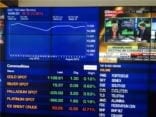
27 Aug Lessons from the Chicago Trading Pits
The story is raw as it is real, but the underlying lesson learnt are timeless. Ride the Hot Tub Time machine back to the 1990’s to review Richard Wright’s fascinating account of this era.
By Richard Wright (director: FIFO Capital)
Looking back, the two years I spent trading equity options on the floor of the Chicago Board Options Exchange (CBOE) in the late 90’s now feels like a crazy dream.
This period happened to span most of the historic Dot-com bubble. Market volatility was high and the atmosphere was mostly hectic and intense. I spent each day working shoulder to shoulder with a motley mix of characters who yelled, screamed and engaged in endless banter and sports talk.
The how I got there via a bank in Tokyo to 3 months intensive training in Philadelphia ( spent playing hours of poker daily in the office and on the tables of Atlantic City on the weekends) is a separate surreal story.
But my time trading on ‘the floor’ was a life changing experience, and on reflection full of valuable business and some life lessons as well. Here is what I clearly remember to this day;
1. Business is just business, don’t take things personally
Having to look someone in the eye when you do business (as opposed to phone or email) is a great leveller. Being in situations where someone is screaming at you one minute only to be showing you photos of their kids the next, was a great lesson that we all have jobs to do, but have much in common at the end of the day.
2. What you do in the slow times can shape your success in the busy times
Despite the images on TV and in the movies, there were frequent tedious periods on the floor when nothing happened. But that was often when the real money was made. The better traders used that time to line-up markets, understand possible mispricing and be ready to pounce when opportunities arose again.
3. Making good decisions is often less important than avoiding bad ones (or avoid situations you don’t understand)
I will never forget a colleague telling me in a thick Chicago accent that “sometimes the best trades are the ones you don’t do”. In most business situations we think the rewards come from concrete action, but there can be times when avoiding something stupid by doing nothing is the smartest action of all.
4. Markets, business and life can be uncertain, volatile and beyond our control. This does not have to be stressful, and can be a source of opportunity
Rather than constantly worry about the next unknown (and usually unknowable) event, the long term successful traders would position themselves so they had options or choices if the unexpected did occur. This enabled them to act when others were pulling back and the risk-adjusted pay-offs were greatest.
5. Street smarts and experience almost always beat book smarts.
You came across all sorts of people on the floor. High IQ and clean cut Ivy League guys jostled alongside ex college football jocks and high school drop-outs who started as ticket clerks before being given the chance to trade. You soon learned never to judge a book by its cover. It was often the people who least looked the part who dominated the business.
6. Being humble and a good person is good for business.
As cutthroat as the floor environment was, integrity and humility was noticed and rewarded. Being an unreasonable ass for the sake of it usually caught up with people to their detriment.
The last lesson is my favourite. Regardless of the business environment, over time you rarely lose out to being a decent person.


